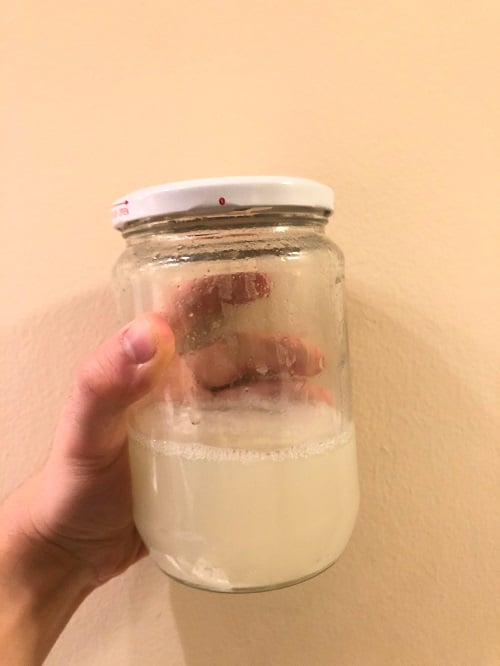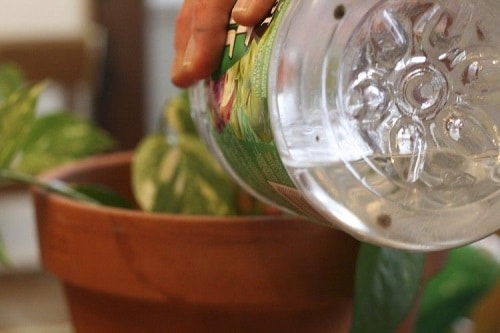Here is Why you Should Use Leftover Pasta Water on Your Plants to make them healthy and lush with the help of this golden liquid.

There are some weird and absurd ways in which you can make sure that your plants get all the required nutrition they need–to be healthy. One of them is using pasta water! Surprised? Here is Why You Should Use Leftover Pasta Water on Your Plants.
Here are some great ways in which you can use expired medicines for plants
Is Pasta Water Good for Plants?
Full of starch, pasta water has traces of calcium, phosphorus, iron, zinc, and potassium that help to increase the plant’s growth by providing beneficial nutrients.
As it is also full of carbohydrates, it helps in boosting bacterial activity in the soil, too.
Note: If you add too much vegetable oil or salt in the water to avoid pasta sticking together, then do not use it on plants as the oil heats up in sunlight and will burn the plant.
How to Use: Strain the water completely, as it’s not good to leave pasta chunks in the soil. Always let the water cool down completely before you start using it.
Benefits of Using Leftover Pasta Water on Plants

1. Regular use of pasta water will result in fuller and lush leaves.
2. It also helps accelerate the growth of beneficial soil bacteria and fungi like lactobacilli and mycorrhizal.
3. This also promotes the healthy development of plants and makes them more resistant to diseases.
4. It is also an excellent way to conserve water, as simply pouring it down the sink would otherwise have made no use, especially when your plants can get the benefits from it!
5. Leftover pasta water can benefit all plants, including vegetables, herbs, flowers, and houseplants.
Make Your Pasta Water a Plant Probiotic

If you want your pasta water to be more powerful, like a mild fertilizer and plant probiotic, ferment it.
Ingredients:
- Cooked pasta water (cooled to room temperature)
- Sugar (around a teaspoon per cup of pasta water)
- Milk (optional, around a tablespoon per cup of pasta water)
How to Get This Done?
Step 1: After cooking pasta, collect the water used for boiling. Allow it to cool to room temperature.
Step 2: To aid in the fermentation process, add a suggested amount of sugar to the pasta water and milk, which is optional, of course.
Step 3: Get a sealed container for this; if you’re using an open jar, cover it with a breathable cloth or paper towel secured with a rubber band.
Step 4: Allow the pasta water to ferment for a few days to a week. During this time, beneficial microorganisms will develop in the water and make it a potent plant probiotic.
Step 5: Before use, dilute the fermented pasta water with fresh water. A common dilution ratio is 1 part fermented water to 5 or 10 parts normal water, depending on the concentration you desire.
How to Apply This Fermented Pasta Water
- Use the diluted fermented pasta water to water your plants, both indoors and outdoors. Ensure you target the root zone and the surrounding soil.
- Apply often to provide a consistent source of nutrients for your plants. Adjust the strength based on your plant’s needs.
Note: Adding milk to the solution can provide additional benefits to the plants. However, be mindful of any potential odor when using milk. Adjust the milk quantity as needed to avoid unpleasant smells.
Fermented Pasta Water Benefits
1. Fermented pasta water becomes a mild source of essential nutrients like potassium, calcium, and magnesium, which promote robust plant growth.
2. The most important thing this fermentation process will do is to make it a useful plant probiotic and its application will encourage the growth of beneficial soil microbes, thereby improving nutrient uptake by plants.


